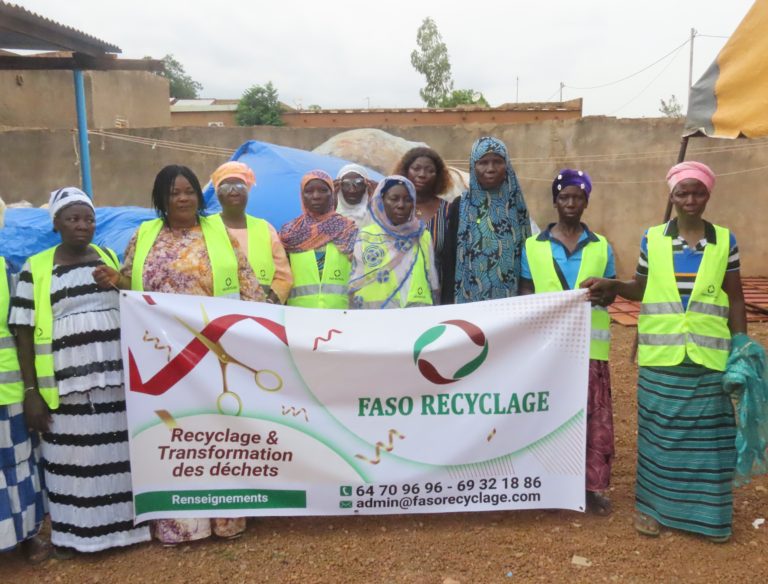By: Dimitri Oubda, ESRAG’s West Africa correspondent
In response to the pressing issue of environmental pollution, the association Faso Recyclage was established on Saturday, August 5, 2023, in Ouagadougou. Spearheaded by a group of volunteer women, this initiative addresses household waste, a major contributor to environmental degradation.
A Mission of Sustainability and Empowerment
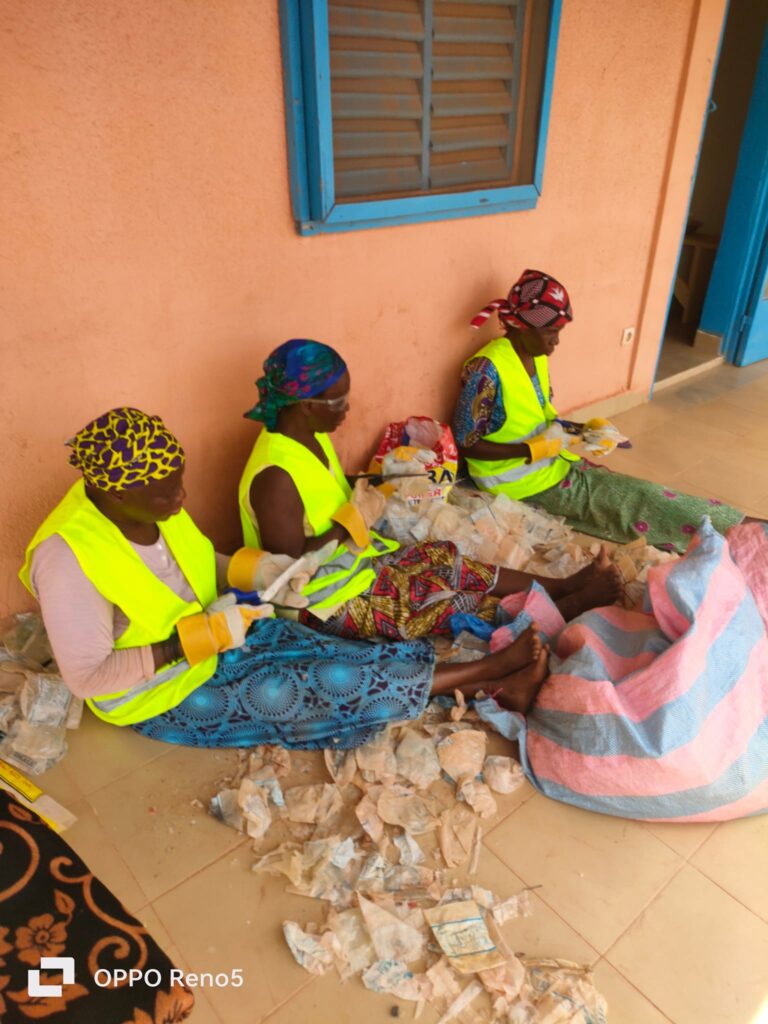
Women sorting waste
Comprised of 17 members, Faso Recyclage is dedicated to collecting, sorting, and shredding waste for reuse by local factories for transformation and repurposing. Uniquely, the association’s workforce is entirely female, primarily composed of internally displaced women from various regions of Burkina Faso.
For founder and president Maimounata Belem, the mission is twofold: “To create a safe and sustainable environment for the empowerment and development of the women involved, while ensuring they receive a monthly income.”
A Commitment to the Environment and Society
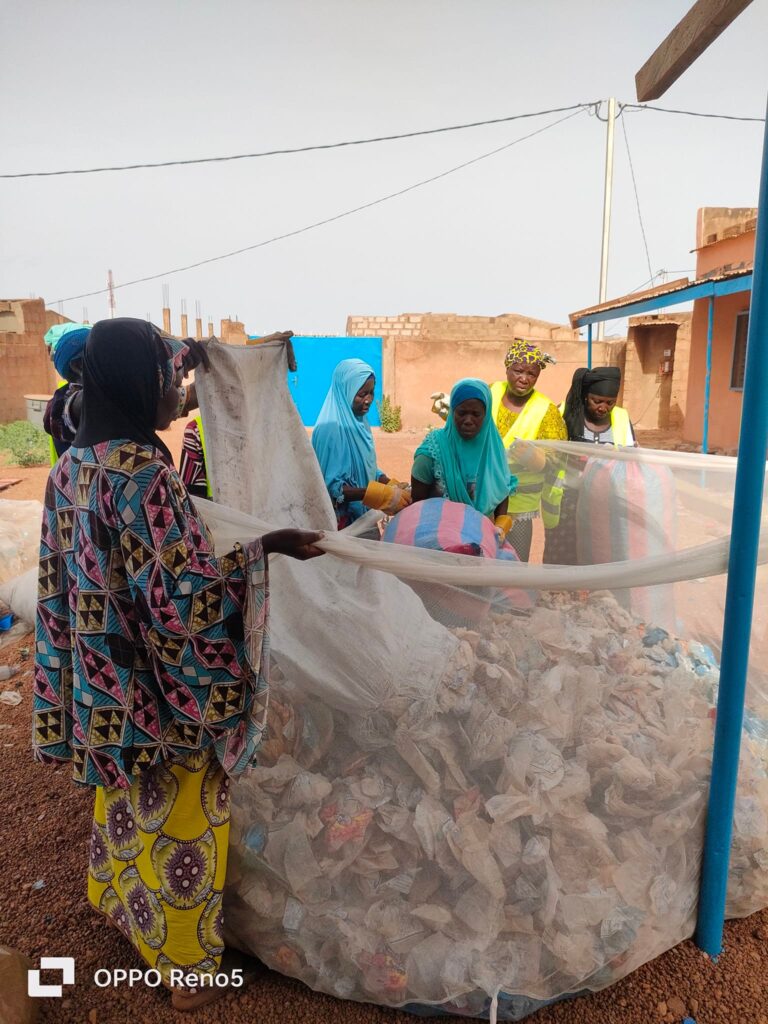
Women sorting and gathering waste
Faso Recyclage conducts waste collection activities in public places, hotels, restaurants, businesses, hospitals, schools, and universities. Weekly collections are organized using available resources to transport waste to designated treatment areas.
While the service is free, the association calls for active community participation. “We ask residents to follow the waste sorting procedure at the source. Agreeing to sort waste is also a sacrifice the community can make for us,” says Belem. This collaboration is vital to the success of the association’s efforts.
In addition to recycling waste to generate income for its members, Faso Recyclage conducts bi-monthly cleanup activities to help maintain the city’s cleanliness.
Support for a Cleaner City
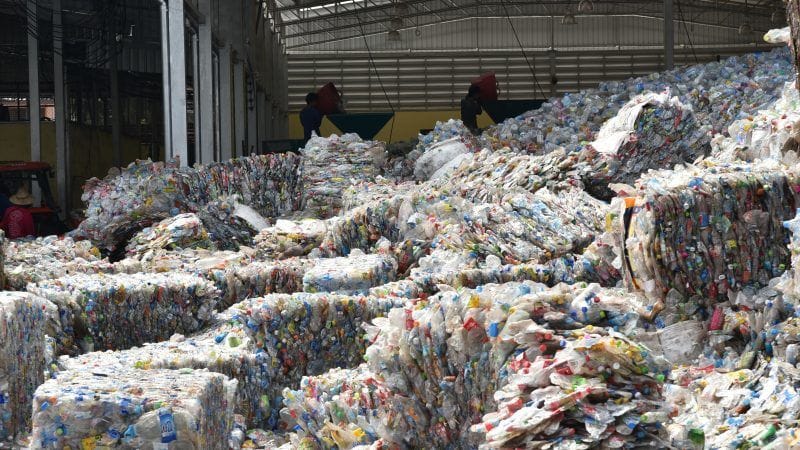
Manufactory where waste is sold for shredding and transformation
According to Belem, “The implementation of this project will facilitate the free management of household waste, contribute to the cleanliness of Ouagadougou, and protect the environment.”
This vision has garnered support from key stakeholders such as Nignan Idrissa, Director of APS Boungou, and Myriam Kresse, representative of Engineers Without Borders (ISF), who have expressed their willingness to assist the initiative.
Overcoming Challenges
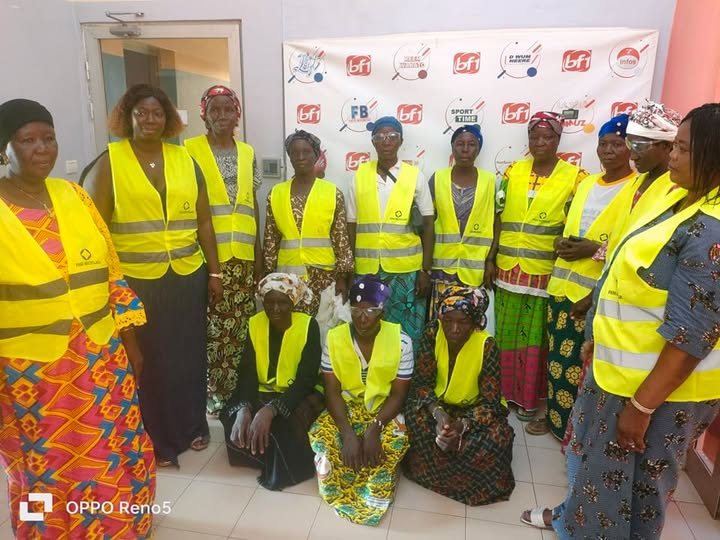
Faso Recyclage women at BF1 TV for their activities promotion
Despite its successes, Faso Recyclage faces financial challenges that have slowed its current activities and projects. Belem emphasizes the need for external support: “It is entirely possible for a Rotary district to take an interest in and support a specific activity, training session, cooperative, or region that aligns with their goals.”
The experience of Faso Recyclage and its Burkinabè leadership demonstrates the implementation capacity an in-country NGO can bring to Rotary humanitarian projects.
A Vision for the Future
Based in the Rayongo neighborhood near the Laafiyaar market and close to the Ouaga II High Court, Faso Recyclage continues to serve the community.
With Faso Recyclage, the hope for a cleaner environment and improved waste management in Ouagadougou is becoming a reality, thanks to the dedication and determination of its committed women.
Editor’s Note:
Burkina Faso faces significant environmental challenges, particularly in waste management and pollution control. The United Nations Environment Programme (UNEP) has partnered with the country on a three-year project to address major chemical and waste management issues, aiming to protect public health and the environment.
Air quality is a pressing concern, with the World Health Organization (WHO) reporting that Burkina Faso’s annual mean concentration of PM2.5 is 43 µg/m³, far exceeding the recommended maximum of 10 µg/m³. This pollution stems from combustion processes, outdated vehicles, and biomass burning, with higher levels recorded during the dry season from November to March (Travel Doctor).
In urban areas, waste management infrastructure is often inadequate. A study in the city of Kaya revealed that poor waste handling and disposal lead to environmental issues such as the proliferation of mosquitoes and flies, bad odors, and visual pollution, which in turn negatively impact residents’ health (Scientific Research Publishing).
Additionally, the mortality rate attributed to household and ambient air pollution in Burkina Faso remains a critical public health issue (World Bank Data).
Against this dire backdrop, ESRAG’s West Africa correspondent, who resides in Burkina Faso, highlights how grassroots initiatives like Faso Recyclage are making a difference. These community-led projects promote sustainable waste management practices and empower residents to take meaningful action against pollution.

